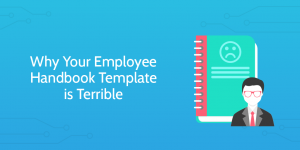When recording an interview for content it’s important to make the most out of it; ask the right questions, the right way. Each question you ask has to be well researched, well timed, and well thought out in order to get a good response from your interviewee.
Here are four tips to make the most out of an interview:

1. Research, Research, and Research
Preparation is by far the most important component to conducting a good interview. Doing as much research as you can about the interview subject shows the interviewee that you have come prepared.
Don’t waste time asking questions whose answers are readily available online. Researching the answers to simple questions and facts ahead of time will leave you with more time to ask meaningful questions. This, in turn, leads to more meaningful answers, which leads to content that resonates more powerfully with consumers.
2. Walk through the subject chronologically
Asking your interview subject about their journey from the beginning is always a clear path to follow.
Shifting to different subjects in irrelevant timelines can create confusion. If you revisit a topic already discussed earlier in the interview, it may lead to an awkward answer, since you and your subject have already moved on to a different topic. It’s no longer at the forefront of your minds, so neither of you will have the same level of attention.
For example, if you’ve already asked a 45-year old business owner about their childhood, don’t ask about it again later unless it specifically ties into the current topic. Ask every question you have about a subject when you are on it, and then leave it there. Keep your questions related to the subject being spoken of at the moment, as opposed to bouncing back and forth in a timeline.
3. Ask for details
Specificity in content is what separates the good from the great. Make sure to grab as many specific details from the interviewee as you possibly can, without pushing too much. Asking for details during the interview can make all the difference when using information from that interview for the final product.
Let’s imagine that you are doing a profile piece about someone, and all you know is that they are Canadian and they were raised by parents involved in the food industry. Prepare questions that will allow you to collect details:
Where in Canada are you from?
What kind of environment did you grow up in?
What did your parents do in the food industry?
And so on…
These kinds of questions may not seem significant. However, as small details accumulate, they can make all the difference.
4. Ask for emotional context
As mind blowing as some facts, statistics, or events are on their own, what truly brings those pieces of information to life is understanding the emotional context behind them. When a significant event, statistic, fact, or situation comes up in your interview, ask the interviewee how they felt about it.
What was going through your mind when…?
Why is this so significant?
How did this impact you?
Etc.
Answers that come from these types of questions often lead to content that resonates with an audience because they are emotional questions. Most facts and statistics don’t resonate on their own; they need to be supplemented with some kind of emotional context in order to bring them to life.
For example, if you’re interviewing the owner of a successful plumbing company about their business, only a small segment of consumers will relate to what being in that industry is like.
However, what most people can relate to is the feeling of succeeding at something that you’ve been trying to accomplish for years. Therefore, it would be smart to ask questions that bring out those relatable emotions.
All in all, as much as interviewing is an art form, remember that it’s ultimately just two people having a conversation. It’s not some sort of grand performance or presentation. If you can integrate these tips while maintaining the perspective that it’s just two people talking, you’ll end up with an awesome interview.
Business & Finance Articles on Business 2 Community
(29)
Report Post





